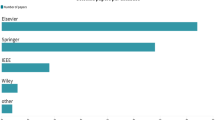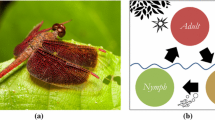Abstract
The services generated by IoT devices have increased with the increasing demand and capabilities of IoT applications. Proximal fog computing networks efficiently facilitate the latency-sensitive services generated by these devices. A better scheduling technique can effectively minimize the service time of devices. Scheduling using an evolutionary method has been proved to be a better choice for service-time minimization. OBCR (opposition-based chemical reaction) method is developed for task scheduling in fog network by utilizing the features of heuristic upward ranking technique and CRO (chemical reaction optimization) technique with OBL (opposition-based learning). The use of OBL in OBCR results in a more diverse population and aids in escaping the local optima. OBCR uses four operators to provide better exploration and exploitation of the solution space. Furthermore, OBCR also improves the stability of these dynamic fog devices. Extensive simulations have demonstrated the better performance of the proposed OBCR technique compared to other techniques in terms of service-time latency and stability. It also has verified the importance of the technique for fog computing networks.














Similar content being viewed by others
Data availability
Publicly available data used.
Code Availability
Open-source software used.
References
The Internet of Things - A movement not a market | IHS Markit. https://ihsmarkit.com/Info/1017/internet-of-things.html
Bonomi, F.; Milito, R.; Zhu, J.; Addepalli, S.: Fog computing and its role in the internet of things. In: MCC’12 - Proceedings of the 1st ACM Mobile Cloud Computing Workshop, pp. 13–15. ACM Press, (2012). https://doi.org/10.1145/2342509.2342513
Liu, C.Y.; Zou, C.M.; Wu, P.: A task scheduling algorithm based on genetic algorithm and ant colony optimization in cloud computing. In: Proceedings - 13th international symposium on distributed computing and applications to business, engineering and science, DCABES 2014, pp. 68–72. Institute of Electrical and Electronics Engineers Inc., (2014). https://doi.org/10.1109/DCABES.2014.18
Gharehchopogh, F.S.; Gholizadeh, H.: A comprehensive survey: whale optimization algorithm and its applications. Swarm Evol. Comput. 48, 1–24 (2019). https://doi.org/10.1016/j.swevo.2019.03.004
Zhang, N.; Yang, X.; Zhang, M.; Sun, Y.; Long, K.: A genetic algorithm-based task scheduling for cloud resource crowd-funding model. Int. J. Commun. Syst. 31(1), 3394 (2018). https://doi.org/10.1002/dac.3394
Attiya, G.; Hamam, Y.: Task allocation for maximizing reliability of distributed systems: a simulated annealing approach. J. Parallel Distrib. Comput. 66(10), 1259–1266 (2006). https://doi.org/10.1016/j.jpdc.2006.06.006
Lam, A.Y.S.; Li, V.O.K.: Chemical-reaction-inspired metaheuristic for optimization. IEEE Trans. Evol. Comput. 14(3), 381–399 (2010). https://doi.org/10.1109/TEVC.2009.2033580
Duan, H.; Gan, L.: Elitist chemical reaction optimization for contour-based target recognition in aerial images. IEEE Trans. Geosci. Remote Sens. 53(5), 2845–2859 (2015). https://doi.org/10.1109/TGRS.2014.2365749
Xu, J.; Lam, A.Y.S.; Li, V.O.K.: Chemical reaction optimization for task scheduling in grid computing. IEEE Trans. Parallel Distrib. Syst. 22(10), 1624–1631 (2011). https://doi.org/10.1109/TPDS.2011.35
Nouioua, M.; Li, Z.: Using differential evolution strategies in chemical reaction optimization for global numerical optimization. Appl. Intell. 47(3), 935–961 (2017). https://doi.org/10.1007/s10489-017-0921-4
Ewees, A.A.; Abd Elaziz, M.; Houssein, E.H.: Improved grasshopper optimization algorithm using opposition-based learning. Expert Syst. Appl. 112, 156–172 (2018). https://doi.org/10.1016/j.eswa.2018.06.023
Topcuoglu, H.; Hariri, S.: Min-You Wu: performance-effective and low-complexity task scheduling for heterogeneous computing. IEEE Trans. Parallel Distrib. Syst. 13(3), 260–274 (2002). https://doi.org/10.1109/71.993206
Ahandani, M..A.; Alavi-Rad, H.: Opposition-based learning in shuffled frog leaping: an application for parameter identification. Inf. Sci. 291(C), 19–42 (2015). https://doi.org/10.1016/j.ins.2014.08.031
Deng, R.; Lu, R.; Lai, C.; Luan, T.H.; Liang, H.: Optimal workload allocation in fog-cloud computing toward balanced delay and power consumption. IEEE Internet Things J. 3(6), 1171–1181 (2016). https://doi.org/10.1109/JIOT.2016.2565516
Yin, L.; Luo, J.; Luo, H.: Tasks scheduling and resource allocation in fog computing based on containers for smart manufacture. IEEE Trans. Industr. Inf. 14(10), 4712–4721 (2018). https://doi.org/10.1109/TII.2018.2851241
Li, L.; Guan, Q.; Jin, L.; Guo, M.: Resource allocation and task offloading for heterogeneous real-time tasks with uncertain duration time in a fog queueing system. IEEE Access 7, 9912–9925 (2019). https://doi.org/10.1109/ACCESS.2019.2891130
Bitam, S.; Zeadally, S.; Mellouk, A.: Fog computing job scheduling optimization based on bees swarm. Enterprise Inform. Syst. 12, 373–397 (2018). https://doi.org/10.1080/17517575.2017.1304579
Skarlat, O.; Nardelli, M.; Schulte, S.; Borkowski, M.; Leitner, P.: Optimized IoT service placement in the fog. SOCA 11, 427–443 (2017). https://doi.org/10.1007/s11761-017-0219-8
Binh, H.T.T.; Anh, T.T.; Son, D.B.; Duc, P.A.; Nguyen, B.M.: An evolutionary algorithm for solving task scheduling problem in cloud-fog computing environment. In: ACM international conference proceeding series, pp. 397–404. Association for computing machinery, (2018). https://doi.org/10.1145/3287921.3287984
Liu, Q.; Wei, Y.; Leng, S.; Chen, Y.: Task scheduling in fog enabled Internet of Things for smart cities. In: International conference on communication technology proceedings, ICCT, vol. 2017-October, pp. 975–980. Institute of Electrical and Electronics Engineers Inc., (2018). https://doi.org/10.1109/ICCT.2017.8359780
Rahbari, D.; Nickray, M.: Scheduling of fog networks with optimized knapsack by symbiotic organisms search. In: Conference of open innovation association, FRUCT, pp. 278–283. IEEE Computer Society, (2018). https://doi.org/10.23919/FRUCT.2017.8250193
Baniata, H.; Anaqreh, A.; Kertesz, A.: PF-BTS: a privacy-aware fog-enhanced blockchain-assisted task scheduling. Inform. Process. Manag. (2021). https://doi.org/10.1016/j.ipm.2020.102393
Singh, S.P.; Nayyar, A.; Kaur, H.; Singla, A.: Dynamic task scheduling using balanced VM allocation policy for fog computing platforms. Scalable Comput. 20, 433–457 (2019). https://doi.org/10.12694/scpe.v20i2.1538
Li, G.; Liu, Y.; Wu, J.; Lin, D.; Zhao, S.: Methods of resource scheduling based on optimized fuzzy clustering in fog computing. Sensors (2019). https://doi.org/10.3390/s19092122
Potu, N.; Jatoth, C.; Parvataneni, P.: Optimizing resource scheduling based on extended particle swarm optimization in fog computing environments. Concurr. Computat. Pract. Exper. 6163, 1–13 (2021). https://doi.org/10.1002/cpe.6163
Zhao, L.; Ren, Y.; Sakurai, K.: Reliable workflow scheduling with less resource redundancy. Parallel Comput. 39(10), 567–585 (2013). https://doi.org/10.1016/j.parco.2013.06.003
Li, Z.; Li, Y.; Yuan, T.; Chen, S.; Jiang, S.: Chemical reaction optimization for virtual machine placement in cloud computing. Appl. Intell. 49(1), 220–232 (2019). https://doi.org/10.1007/s10489-018-1264-5
Zhao, L.; Ren, Y.; Xiang, Y.; Sakurai, K.: Fault-tolerant scheduling with dynamic number of replicas in heterogeneous systems, pp. 434–441. IEEE, (2010). https://doi.org/10.1109/HPCC.2010.72
Tizhoosh, H.R.: Opposition-based learning: a new scheme for machine intelligence. In: Proceedings - international conference on computational intelligence for modelling, control and automation, CIMCA 2005 and International Conference on Intelligent Agents, Web Technologies and Internet, vol. 1, pp. 695–701 (2005). https://doi.org/10.1109/cimca.2005.1631345
Mahdavi, S.; Rahnamayan, S.; Deb, K.: Opposition based learning: a literature review. Swarm Evol. Comput. 39, 1–23 (2018). https://doi.org/10.1016/j.swevo.2017.09.010
Yadav, A.M.; Sharma, S.C.; Tripathi, K.N.: A two-step technique for effective scheduling in cloud-fog computing paradigm. In: Advances in Intelligent Systems and Computing, vol. 1086, pp. 367–379. Springer, Singapore (2021). https://doi.org/10.1007/978-981-15-1275-9_30
Ye, S.; Ma, H.; Xu, S.; Yang, W.; Fei, M.: An effective fireworks algorithm for warehouse-scheduling problem. Trans. Inst. Meas. Control. 39(1), 75–85 (2017). https://doi.org/10.1177/0142331215600047
Braekers, K.; Ramaekers, K.; Van Nieuwenhuyse, I.: The vehicle routing problem: state of the art classification and review. Comput. Ind. Eng. 99, 300–313 (2016). https://doi.org/10.1016/j.cie.2015.12.007
Gupta, H.; Vahid Dastjerdi, A.; Ghosh, S.K.; Buyya, R.: iFogSim: a toolkit for modeling and simulation of resource management techniques in the Internet of Things, Edge and Fog computing environments. Software Pract. Exp. 47(9), 1275–1296 (2017). https://doi.org/10.1002/spe.2509
Yeh, W.C.; Lai, C.M.; Tseng, K.C.: Fog computing task scheduling optimization based on multi-objective simplified swarm optimization. J. Phys.: Conf. Series (2019). https://doi.org/10.1088/1742-6596/1411/1/012007
Meena, J.; Kumar, M.; Vardhan, M.: Cost effective genetic algorithm for workflow scheduling in cloud under deadline constraint. IEEE Access 4, 5065–5082 (2016). https://doi.org/10.1109/ACCESS.2016.2593903
Gill, M.; Singh, D.: ACO based container placement for CaaS in fog computing. Proc. Comput. Sci. 167, 760–768 (2020). https://doi.org/10.1016/j.procs.2020.03.406
Yadav, A.M.; Tripathi, K.N.; Sharma, S.C.: A bi - objective task scheduling approach in fog computing using hybrid fireworks algorithm. The J. Supercomput. (2021). https://doi.org/10.1007/s11227-021-04018-6
Funding
No funding information available.
Author information
Authors and Affiliations
Corresponding author
Ethics declarations
Conflict of interest
Authors do not have any conflicts of interest.
Rights and permissions
About this article
Cite this article
Yadav, A.M., Tripathi, K.N. & Sharma, S.C. An Opposition-Based Hybrid Evolutionary Approach for Task Scheduling in Fog Computing Network. Arab J Sci Eng 48, 1547–1562 (2023). https://doi.org/10.1007/s13369-022-06918-y
Received:
Accepted:
Published:
Issue Date:
DOI: https://doi.org/10.1007/s13369-022-06918-y




